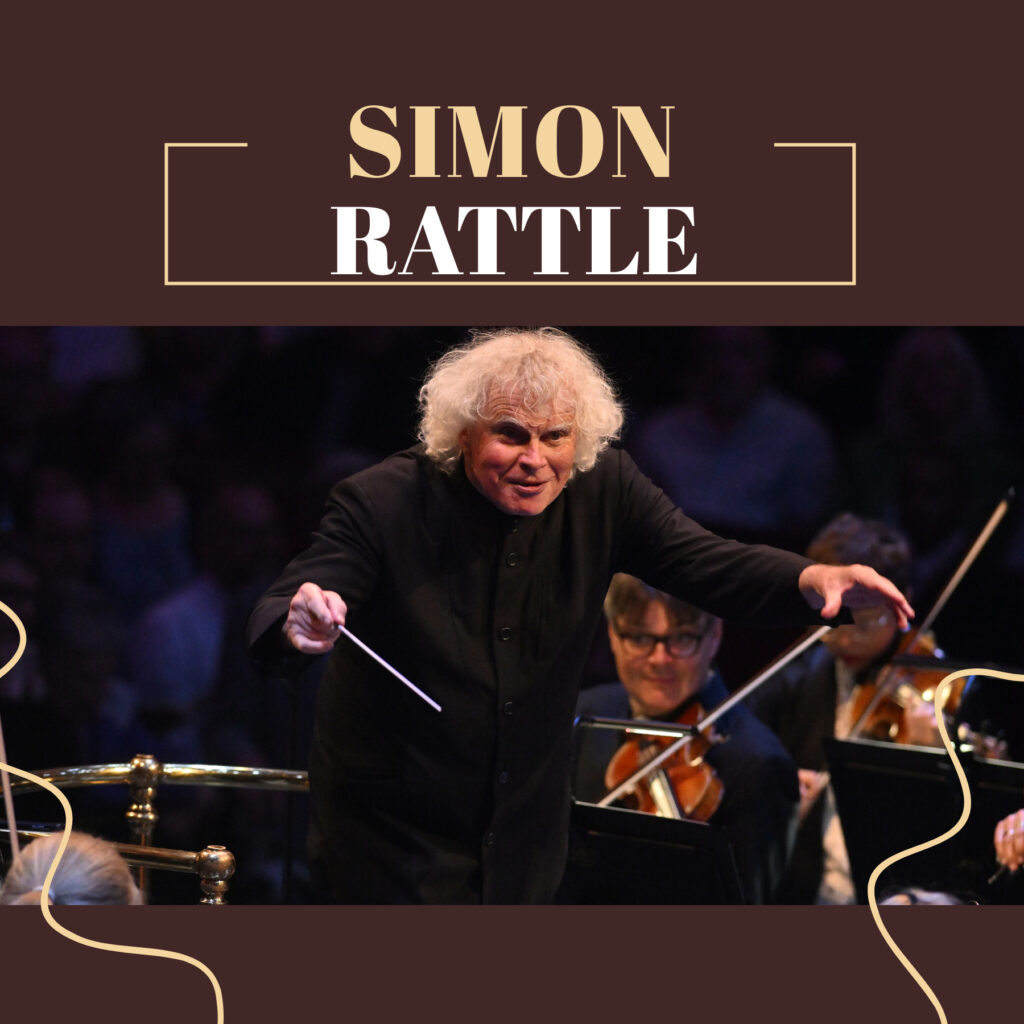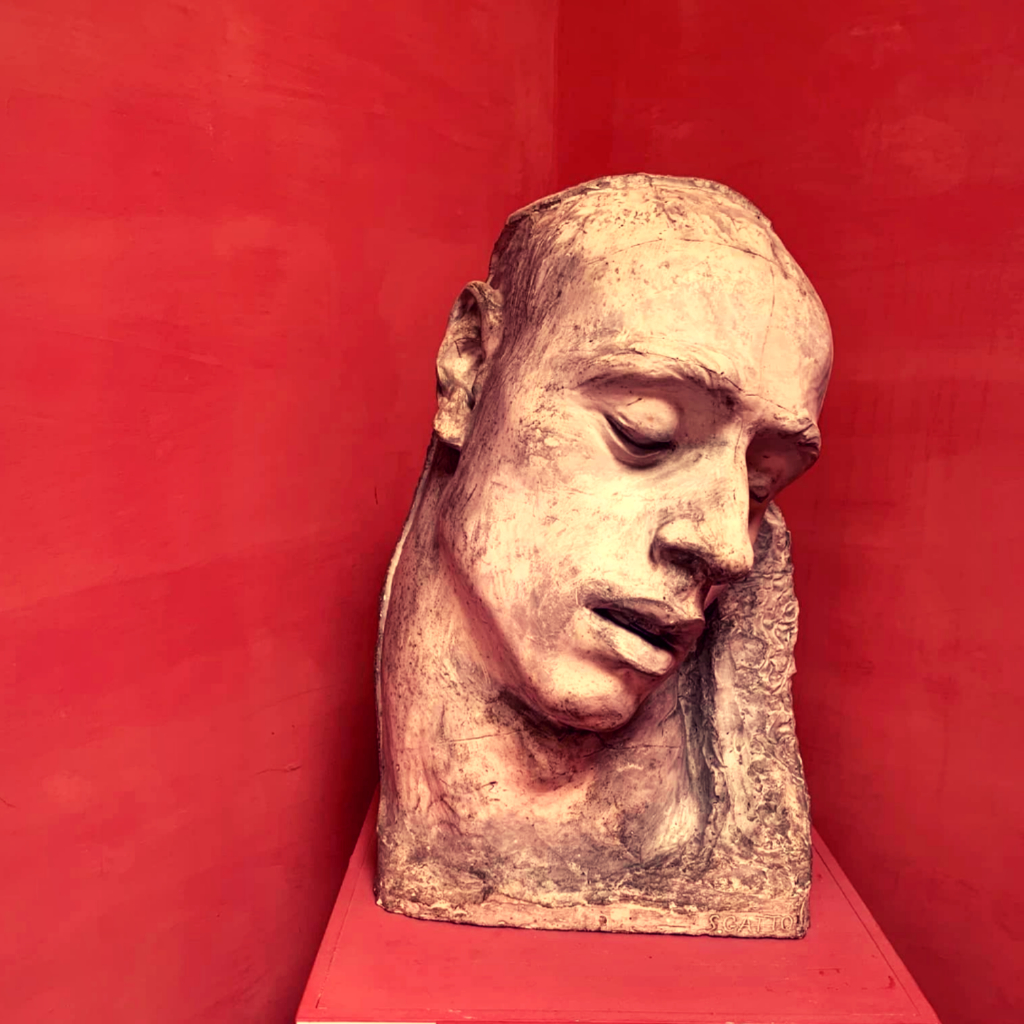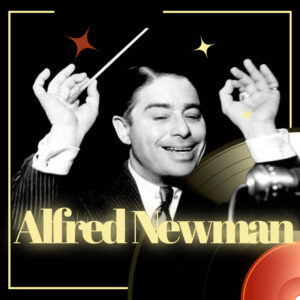
Simon Rattle meets Simon Rattle: “Conductors aren’t separate people! We don’t exist without our orchestras.”
Attitude to Competition Victories (After the 1974 the John Player International Conducting Competition Victory)
People do plan their lives, you know, and I had my life well planned, I had the money to do a fourth year at the Academy. I just went into the competition for fun, for the experience of conducting a professional orchestra. I didn’t think I had a chance, and I almost didn’t want to win anyway. I was surprised rather than elated: I had to grow up all of a sudden.
Universities and musical vocation
In my mid-twenties, I was with a conducting career, but I had never been to university and I wanted to. There were things I wanted to study in depth. I also wanted to see if I could survive without music.
The role of the music director and the long-term development of the orchestra
I will be much more involved with the day to day, even though I won’t be living here permanently. This is a proudly independent orchestra, but it’s a matter of having someone taking care – it’s been a long time since they’ve had that.” “Valery [Gergiev] wasn’t interested, nor Claudio [Abbado]. Colin [Davis] loved them to bits, but he made it very clear that he did not want anything to do with the running or the auditions or the personnel.
About working during a pandemic
There was an audience of 500 all wearing masks,’ he says, ‘sitting near to each other, sitting in a block. Afterwards they were shaking hands! I was prepared for the occasional hug, but handshaking! It was almost like exposing yourself. The guy who arranged all this came up to me and said: “We’re so looking forward to having you and the LSO playing Mahler’s Sixth in May.” I laughed. But then I thought, “Will we be allowed to rehearse it in England?
On the resumption of work after the pandemic
It does strike me that for all of us part of the problem is that it involves reimagining what the world might be. ‘Many of my colleagues feel that as with a magic switch it’ll just go back to what it was.
About the Berlin Philharmonic
Herbert von Karajan at one point said: 'Make no mistake. I am not an elitist. I am a super-elitist" — a reference to Karajan's artistic goals with the Berlin Philharmonic, considered the best orchestra in Germany and maybe even in the world. Added Rattle, "I remember sitting in this very room, opposite Karajan, who said to me: 'The thing about this group is that if you put 10% in, the orchestra will give you 90% back.
About Beethoven
If anyone has conducted a Beethoven performance, and then doesn't have to go to an osteopath, then there's something wrong.
Lang Lang’s piano personality
I don't know when I've ever heard a pianist who was able to be more sheerly, uncannily accurate in this Bartok pieceand then still have the technical ability in reserve to make it dance and to make it phrase.
About Bruckner’s symphony
The first thing I noticed when studying this Bruckner Ninth finale were those strange transition passages you can find in any typical Bruckner finale. But here, in the Ninth, I strongly felt as if Bruckner was obsessed with the last things in life, or maybe even the very last thing he could possibly hold onto this. As if he was thinking that when he could hold onto this, work on this, he could find his way out of this obsession. There is absolutely no doubt in my mind that Bruckner was going through an existential crisis within himself. However, there is also no doubt that he was dealing with a compositional crisis, as many composers do, also composers who are writing finales for their symphonies. Look at Brahms, how much he struggled with writing the finale for his First Symphony, as the different versions that exist tell us.



